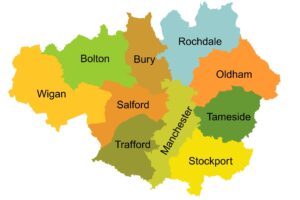Sixty local authority now have a population older than Japan, where the average age is 46, according to a new report.
The report by the Resolution Foundation warns that while the UK population as a whole is ageing and that one in four people in the UK are set to be over 65 by 2041.
It adds that the average age has been rising steadily – from 36 in 1975 to 40 today and there are widespread demographic differences in both the pace and even direction of ageing in different areas.
It states 60 local authorities have a higher typical age than the oldest country in the world, Japan, where the average age is 46.
And in some areas, like North Norfolk, East Lindsay and Rother, the average age is over 50 years old.
But in contrast, the report found 23 local authorities with a median age that is lower than that in Chile (33 years), which is one of the youngest OECD countries.
The report adds that many young people are leaving rural and coastal communities, which is having a profound effect not only on the average age and economies of those areas, but also on the areas they move to.
For example, it says migration from other parts of the UK is a key factor behind Nottingham’s ‘anti-ageing’, where the average age is now 29.
In the 10 fastest-ageing areas of the UK, women aged 15-44 account for just less than 15% of the population, compared to a UK average of 19%, the report states.
In contrast, poorer urban ethnically diverse areas are ageing more slowly because of high birth rates.
The high birth rate in Barking & Dagenham (19 births per 1,000 people, compared to 11 in the UK as a whole) has given it the highest proportion of under 18s in the country.
‘Everyone knows we’re getting older, but how and where this ageing is taking place is less well understood,’ said researcher, Charlie McCurdy.
‘Places like North Norfolk, where the average age is now over 50, are ageing rapidly. In Nottingham, however, the average age is under 30 – and the city is actually getting younger.
‘Britain is growing apart as it ages because many rural and coastal communities are welcoming fewer babies each year, while migration within the UK and from abroad has seen younger people concentrating in urban areas that are already relatively young.
‘This demographic divergence needs to be better understood by both policymakers and politicians, with implications for our local economies and national politics.’
The full report – Ageing, Fast and Slow – is available to read here.
Photo Credit – Stevepb (Pixabay)

















Leave a Reply